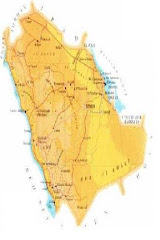 As is commonly known, Arabia's culture derives from writings of the Holy Book. The richness of its language is without comparison and it is the fountainhead of Arabia's culture and faith. One direct manifestation of this heritage is the art of calligraphy of all Arabic art forms of this artistic expression. Craftsmanship of a high order is evident in the beautiful workmanship in precious metals. The ancient Arab tradition of hospitality continues unchanged to the present day.
As is commonly known, Arabia's culture derives from writings of the Holy Book. The richness of its language is without comparison and it is the fountainhead of Arabia's culture and faith. One direct manifestation of this heritage is the art of calligraphy of all Arabic art forms of this artistic expression. Craftsmanship of a high order is evident in the beautiful workmanship in precious metals. The ancient Arab tradition of hospitality continues unchanged to the present day.Traditions and craftsmanship :The interlinking spheres of mathematics and astronomy are equally important aspects of the Arabian culture heritage. The word "algebra" is derived from Arabic word "Algebra". Navigation and cartography were direct developments of these numerate skills.
Similar attributes of outstanding craftsmanship are shown in the development of intricate workmanship in precious metals and even in household goods. It was in the settled communities such as Jeddah, Makkah that these skills flourished.
Both town dwellers and bedouins, however, shared one ancient Arab tradition: That of hospitality. Even today, in the home, or on Saudi flight, drinking Arab coffee. The method of preparation is traditional, each step is an almost ritually observed process.
The poetic tradition of the bedouin is a further example of complex and beautiful art form.
 Poetry promulgated the virtues and merits of their tribes such as the obligation to respect social values. Generosity, hospitality and courage were, to them, a matter of honor and failure to adhere to this unwritten code was regarded as a great insult.
Poetry promulgated the virtues and merits of their tribes such as the obligation to respect social values. Generosity, hospitality and courage were, to them, a matter of honor and failure to adhere to this unwritten code was regarded as a great insult.Despite the great pace of growth the Kingdom has witnessed over the last two decades, traditional culture and social values have been maintained steadfastly and the rich heritage of the Kingdom protected and enhanced.























